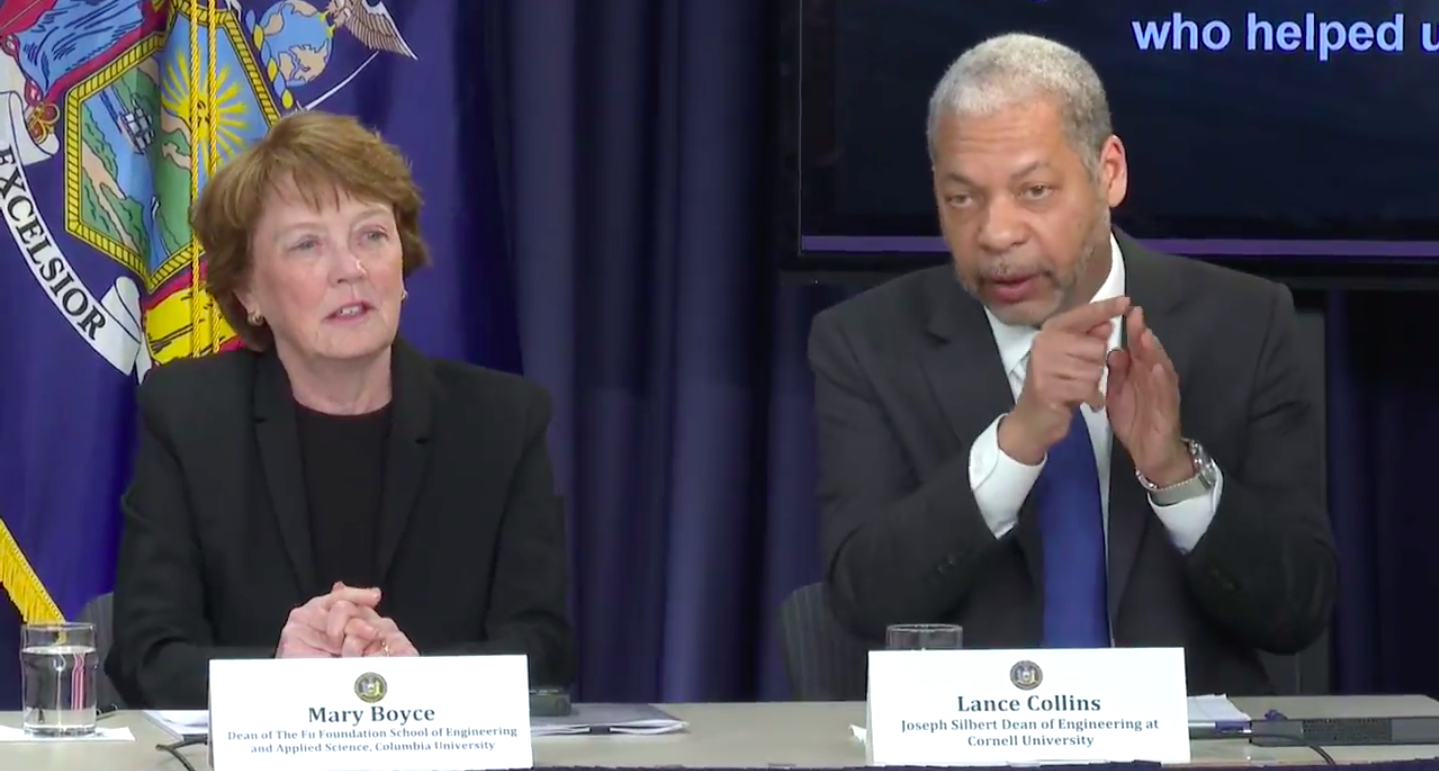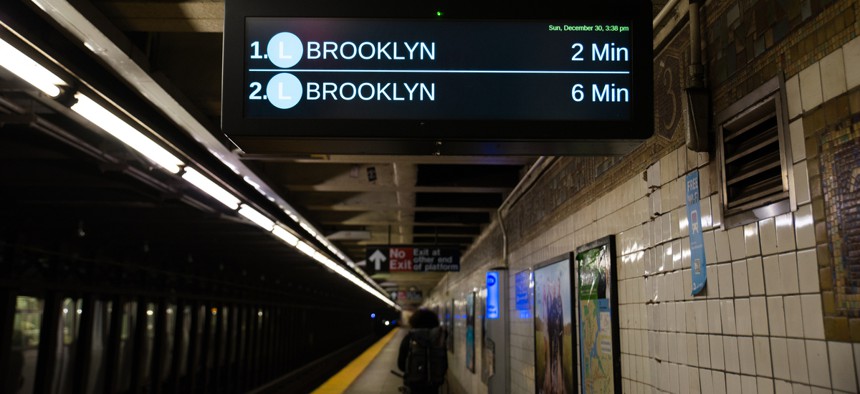Connecting state and local government leaders
“Necessity is the mother of invention,” says Gov. Andrew Cuomo, who plans to “break the box” on a long-planned tunnel rehabilitation project three months before its scheduled start.
Just a few months before a long-planned 15-month closure of a heavily used subway line connecting Brooklyn and Manhattan had been scheduled to get started, New York Gov. Andrew Cuomo announced Thursday that the painful disruptions for the L train would no longer be necessary.
The governor announced that the Metropolitan Transportation Authority, the state agency that runs New York City’s subway, would shift gears entirely for the project to repair and reconstruct the tunnels and track infrastructure, which had been deteriorated by the saltwater inundation that came from Superstorm Sandy in 2012.
“Necessity is the mother of invention,” the governor said during a news conference at his office in midtown Manhattan, discussing the new approach the MTA will use to rehabilitate the L train’s twin tunnels, which he said could now be accomplished on nights and weekends and avoid a total shutdown of service.
The solution that a panel of academic experts, including the engineering deans of Columbia and Cornell universities, came up with: Instead of ripping out the entirety of the saltwater-damaged concrete bench wall and its damaged cable conduits that parallel the tracks, move those conduits to a “racked” system attached to the tunnel wall.
While unstable sections of the damaged bench walls would be removed, other sections not as damaged could be stabilized using fiberglass wrapping and outfitted with fiber sensor cables that would be monitored to detect shifts or cracks. LIDAR would be used to monitor deformation in the bench wall.

Lance Collins, the dean of Cornell University’s College of Engineering, said the monitoring systems would lead to “a higher level of understanding of what’s going on with the tunnel.”
The old cable conduit in the bench wall would be left in place. Since much of the concrete bench wall could remain in place, that eliminates the need for full closure of the tunnels. Cuomo said the work will take 15 to 20 months, depending on the amount of unstable bench wall that needs to be removed.
The governor touted the less-invasive approach as an innovative one. While racking systems for conduits and wrapping concrete in fiberglass are not new construction techniques, their application in a subway tunnel would be pioneering in the U.S. transportation sector. “No rail system has used this approach before,” Cuomo said.
The looming subway disruptions for L train commuters, which has prompted some residents of the Bushwick and Williamsburg neighborhoods in north Brooklyn to move elsewhere in the city, necessitated an “outside the box” idea to see if there were any other options to avoid a 15-month subway closure. “Sometimes you have to break the box.”
But Cuomo’s box-breaking approach to avoid a full shutdown carries risk. Time will tell once the work is underway and completed.
Benjamin Kabak, the longtime observer of the New York subways at Second Avenue Sagas, described Cuomo’s shift in strategy like this: “It’s a very Cuomo-ian roll of the dice as this technology is unproven as to its application in subway tunnels but has been implemented in other contexts successfully, but for now, it seems the scope of L train work is posed to change significantly, raising more questions and concerns.”
Cuomo’s L’pocalypse pivot has prompted questions about why the MTA hadn’t considered these construction techniques far sooner in the process, instead of waiting about three months before the scheduled start of the shutdown.
The Riders Alliance, a transit advocacy group, wrote in a tweet: "The governor's plan may or may not work, but you'll pardon transit riders for being skeptical that a last-minute Hail Mary idea cooked up over Christmas is better than what the MTA came up with over three years of extensive public input."
Transit Center, a foundation promoting urban mobility, asked in a tweet: “What is left of MTA’s technical credibility when engineering professors can come up with a better plan in a few weeks?”
Cuomo acknowledged that the MTA’s original plan for a full closure of the L train’s East River tunnels to accommodate the track rehabilitation was “the original best practice” design approach, noting that saltwater deterioration of subway tunnels is a very new problem, one brought by Superstorm Sandy.
“This is obviously a major shift in approach,” the MTA’s acting chairman, Fernando Ferrer, said at the news conference.
Collins also pointed out that Sandy “is not the last storm New York will experience. We want to make sure the tunnel is more resilient in the future.”
Additional recommendations to harden the L train’s East River tunnels against future flood events during major coastal storms include adding watertight “submarine-type gates” and increasing pumping capacity.
The planned closure of the L train had prompted a massive effort to provide alternative ways for L train riders to cross the East River, including boosting subway service on nearby lines plus adding ferry service on the East River and shuttle bus routes over the Williamsburg Bridge.
New York City Mayor Bill de Blasio, according to amNY, said that his administration didn’t have an immediate reaction on the state’s plan to significantly reduce the disruptions from the L train tunnel rehabilitation.
"Anything that avoids disruption, I favor, obviously," de Blasio said at a news conference. "And a lot of people in Brooklyn, a lot of people in Manhattan were really worried about the L train shutdown. If there's a plan that can be good for the people of our neighborhoods, that's great, but I want to reserve any further judgment until I hear more."
Michael Grass is Executive Editor of Route Fifty and is based in Seattle.

NEXT STORY: Sacramento gets ready for 5G test drive




